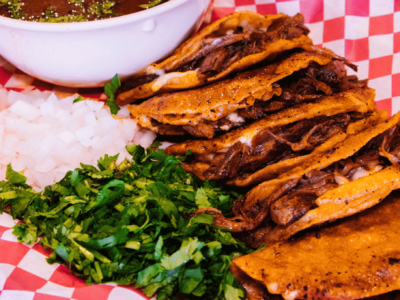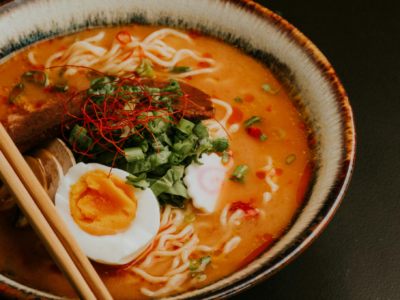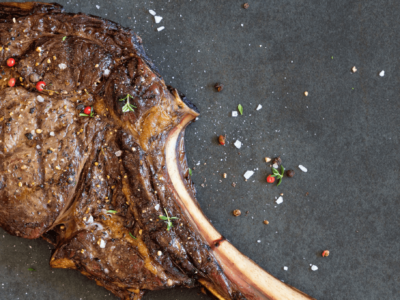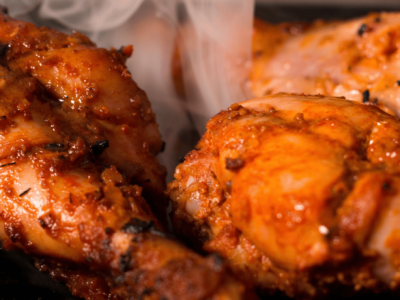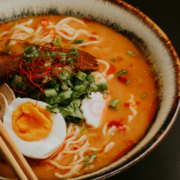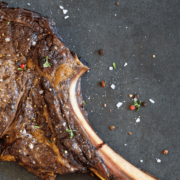Slow-cooked lamb is a culinary masterpiece that transcends the boundaries of ordinary meals. Slow cooking lets the meat tenderize, infusing it with rich flavors and creating a succulent and satisfying dish. This article discusses the points that go into creating the perfect slow-cooked lamb recipes. From choosing the proper cut of meat to mastering the cooking process, it explores every facet of this delectable culinary art.
Contents
The Perfect Cut
The foundation of any great slow-cooked lamb recipe lies in the selection of the perfect cut of meat. While lamb is known for its tender and flavorful meat, some cuts are better suited for slow cooking than others. However, the best cuts for slow-cooking lamb recipes typically contain a lot of connective tissue and fat. They break down over time, resulting in that melt-in-your-mouth texture and rich taste.
Shoulder: Lamb’s shoulder is a go-to choice for slow-cooking. It’s marbled with fat and collagen, making it ideal for long, slow cooking methods. The meat becomes incredibly tender and takes on the flavors of the seasonings and liquids it’s cooked in.
Leg: Although the leg of lamb is often roasted, it can also be used for slow cooking. It’s a leaner cut compared to the shoulder, so it benefits from a longer cooking time to reach optimal tenderness.
Shanks: Lamb shanks are another excellent choice. Moreover, they are rich in connective tissue, resulting in a dish that’s both flavorful and fall-off-the-bone tender. Slow-cooked lamb shanks are a true delicacy.
The Art Of Seasoning
To elevate your low-cooked lamb recipes to perfection, seasoning is essential. The right combination of herbs, spices, and aromatics revolutionize a simple dish into a gourmet experience. Consider these tips for seasoning your lamb:
Marinade: Marinating the lamb before slow cooking allows the flavors to penetrate deep into the meat. A combination of olive oil, rosemary, garlic, thyme, and lemon zest in a marinade has the potential to create culinary magic.
Dry Rub: A dry rub of spices like cumin, coriander, paprika, and black pepper can create a flavorful crust on the lamb during cooking.
Seasoning Throughout: Don’t forget to season your lamb throughout the cooking process. After that, add salt and pepper in layers to ensure each bite is well-seasoned.
The 7 Steps To Slow Cooking Process
The heart of slow-cooked lamb recipes lies in the cooking process itself. This method requires patience, but the results are well worth the wait. Here’s a step-by-step guide to perfecting the process:
1. Searing:
Begin by searing the lamb in a hot pan or skillet. Searing locks in the meat’s juices and adds depth to the flavor. Aim for a deep, golden-brown crust on all sides.
2. Chop The Veggies To Cook With
Now, use variety of hard veggies, for example, celerity, potatoes, onions, carrots, and others, into three pieces.
You need them with the meat to enhance its flavors. Also you can add the remaining veggies as salads that work well with a full meal. Hence, this is one area where it works well.
3. Low and Slow:
The magic of slow cooking happens when you maintain a low temperature for an extended period. Most recipes for slow cooking lamb call for temperatures between 275°F (135°C) and 325°F (163°C). This allows the collagen and fat to break down gradually, resulting in tender meat.
4. Liquid Gold:
Adding a flavorful liquid, such as broth, wine, or a combination of both, is essential. The liquid keeps the lamb moist and creates a luscious sauce as it reduces over time.
5. Patience is a Virtue:
Slow cooking takes time. Depending on the cut and size of the lamb, you might need to cook it for several hours. Employ a meat thermometer to guarantee it reaches your preferred degree of doneness.
6. Resting Period:
Once your lamb is cooked to perfection, let it rest for a few minutes before carving. This allows the redistribution of the juices throughout the meat, ensuring each bite is succulent and flavorful.
7. Serve The Perfect Slow Cooked Dish
Now that the cooking is done, slightly remove the meat from the pot. Add spoonfuls of vegetables, which are topped with the juice of cooking. Add salt and a cooker to enjoy the taste of your delicious meal.
What Are The Benefits Of Slow Cooking Process?
What are the benefits of a slow-cooked process? The internet is filled with this question. If you are a lover of good food, you know there is nothing better than a slow cooking process. In a slow-cooked meal, the lamb, chicken, Chile orn arne, or fish gets tenderized. It allows them to melt down slowly and extract the juices of the spices. Ultimate, it turns highly flavorous. However, let’s try to understand it deeply.
Slow Cooking Is Healthy And Nutritious
Differnet studies project the idea that slow-cooked food is good for health and it is one of the most healthy and nutritious approaches to cooking. Moreover, the slow-cooked dishes help clean up and incorporate the vegetables. Ultimately you do not need to go for a many meal lunch. Yes, this is the benefit that you can have with the help of slow cooking.
It Is Tastier Compared To Other Process Of Cooking
There is no doubt about the fact that the meat which is cooked with the best of ingredients and for a longer period of time tastes best compared to other styles of coking. Plus, you can easily cook a wide variety of foods like soups, casseroles, and plenty of other delicious and easy recipes. It’s one of the few opportunities to include different ingredients.
Unmatched Convenience In Preparing Slow-Cooked Lamb Recipes
Probably one of the most important points about cooked dishes is that they e, they have convenient, and by that time, you can cook some other dishes. So it’s time to enjoy your meal.
Conclusion
Perfecting the art of slow-cooked lamb recipes requires attention to detail and a passion for flavor. Start with the proper cut of meat, season it thoughtfully, and embrace the slow cooking process. The result will be a mouthwatering masterpiece that you and your guests will savor, celebrating the rich and timeless tradition of slow cooking.
Also Read

